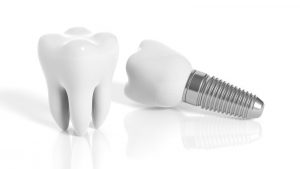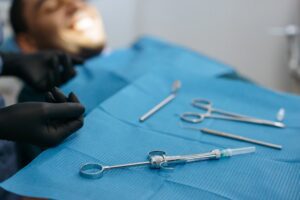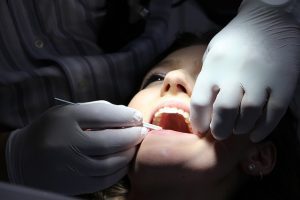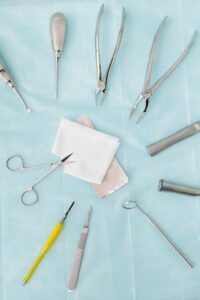Any dental surgeon worth their salt can tell you that your oral health is a window into your overall well-being. The two are inextricably linked, and any sort of dental issue you’re facing—whether that’s tooth failure and needing a high-quality replacement tooth implant, bone grafting around the jaw and mouth, or some other type of dental surgery—can sometimes be linked to underlying health conditions. Recent research has shed light on a compelling connection between diabetes and oral health. Diabetes, a chronic condition that affects the body’s ability to regulate blood sugar, can exert a profound influence on oral health, and conversely, oral health can impact diabetes management. Your local oral surgeon could probably talk your ear off how the two are connected, and it’s one of the many reasons that your dentist needs to know any pre-existing health conditions when you come in for a visit. Let’s delve into the intricate relationship between diabetes and oral health and understand why a holistic approach to healthcare is crucial.
Understanding Diabetes
Diabetes is a metabolic disorder characterized by elevated levels of blood glucose, commonly known as blood sugar. There are two primary types of diabetes:
- Type 1 Diabetes: This occurs when the immune system mistakenly attacks and destroys insulin-producing cells in the pancreas, leading to a lack of insulin.
- Type 2 Diabetes: This results from the body’s inability to use insulin effectively or produce enough insulin.
Both types of diabetes can have significant implications for oral health. If you have either type of Diabetes, it’s important to discuss this with your oral healthcare provider prior to receiving treatment or going in for any kind of mouth surgery. For example, Diabetes can contribute to delayed wound healing, something your surgeon will need to know prior to going in for any kind of wisdom tooth extraction, receiving zirconium dental implants for missing teeth, or any other kind of surgery where incisions are made in your mouth so your provider can create an accurate post-op care plan tailored to you.
The Diabetes-Oral Health Connection
Gum Disease (Periodontitis)
Diabetes and gum disease share a bidirectional relationship. Individuals with diabetes are more prone to gum disease, and, conversely, untreated gum disease can make it challenging to manage blood sugar levels. Gum disease in diabetes is often more severe and progresses more rapidly, increasing the risk of tooth loss. Regular dental check-ups and exceptional oral hygiene are critical for managing and preventing gum disease in individuals with diabetes. Untreated gum disease can lead to complications like gum loss, requiring soft tissue grafting to restore the gumline. In even more advanced cases, it can cause bone and tooth loss, necessitating long-term tooth replacement implants or even bone grafting for the mouth. If you have Diabetes, it’s important to discuss this with your provider so they can keep a close eye on your oral health at your checkups.
Dry Mouth
Diabetes can contribute to a reduction in saliva production, leading to dry mouth. Saliva is essential for neutralizing acids, washing away bacteria, and aiding in digestion. A dry mouth can increase the risk of cavities, gum irritation, and oral infections. Staying hydrated and using sugar-free gum or lozenges can help alleviate dry mouth symptoms. If you experience dry mouth on a regular or semi-regular basis, it’s important to share this with your oral surgeon or your dentist. Having a dry mouth following any kind of tooth extraction surgery—whether that’s getting your wisdom teeth removed from your mouth or something else—can increase the risk of post-op infection, and your oral healthcare provider can create a custom aftercare plan for you based on this.
Thrush (Oral Candidiasis)
Individuals with diabetes may be more susceptible to fungal infections, including oral candidiasis or thrush. High blood sugar levels create an environment conducive to the overgrowth of yeast. Maintaining optimal blood sugar control, practicing good oral hygiene, and addressing underlying factors can help prevent thrush. These types of infections are common in patients with compromised immunity following any kind of surgical tooth extraction. If you have Diabetes or another autoimmune condition, having a conversation with an experienced dental surgeon prior to having an extraction performed can allow them to take additional post-care steps to combat potential thrush infections.
Delayed Wound Healing
Diabetes can affect the body’s ability to heal, including oral tissues. After dental procedures or oral surgeries, individuals with diabetes may experience delayed wound healing. This could look like a wisdom tooth extraction site failing to close up and begin the healing process or having difficulty with new implant replacements for your teeth. Close communication between the surgeon who performs oral operations and healthcare provider is crucial to ensure coordinated care and appropriate precautions. Typically, there are additional steps in post-surgery care that can be taken to ensure that everything is healing up as intended.
Burning Mouth Syndrome
Some individuals with diabetes may experience a burning sensation in the mouth, known as burning mouth syndrome. The exact cause is not well understood, but it may be related to nerve damage or changes in taste sensation associated with diabetes. Proper management involves addressing blood sugar levels and seeking supportive care.
Managing Diabetes and Oral Health
- Control Blood Sugar Levels: Maintaining stable blood sugar levels is paramount for overall health and effective diabetes management. Regular monitoring, medication adherence, and lifestyle modifications, including a healthy diet and regular exercise, can contribute to blood sugar control.
- Commit to Excellent Oral Hygiene: Diligent oral hygiene practices are crucial for individuals with diabetes. Brush your teeth at least twice a day with a fluoride toothpaste, floss daily, and use an antiseptic mouthwash as recommended by your dentist. Regular dental check-ups are essential for monitoring oral health and addressing issues promptly. Your dentist or oral surgeon in your area can help address any potential issues as they arise—however, just like with anyone else, having a good, consistent, complete oral hygiene routine is the easiest way to prevent complications in oral health.
- Stay Hydrated: Adequate hydration is vital, not only for general health but also for preventing dry mouth. Drinking water throughout the day can help maintain saliva production and alleviate dry mouth symptoms. If you’re struggling with dry mouth after having wisdom teeth pulled from your mouth or after receiving a permanent dental implant, staying hydrated and upping your water intake is one of the best ways to keep the healing process going as smoothly as possible and prevent infection.
- Quit Smoking: Smoking is a significant risk factor for gum disease and other oral health issues. Quitting smoking can have numerous health benefits, including improved oral health.
- Regular Dental Check-ups: Regular dental check-ups are essential for individuals with diabetes to monitor oral health, detect issues early, and receive professional cleanings. Inform your dentist about your diabetes status and any changes in your health. Receiving regular check-ups can help prevent periodontitis and the need for soft tissue grafting for missing sections of the gumline along with plenty of other complications that can arise.
The Bottom Line
The connection between diabetes and oral health is intricate and multifaceted. Recognizing the interplay between the two and adopting a comprehensive approach to healthcare can significantly positively impact the well-being of individuals with diabetes. By managing blood sugar levels, prioritizing excellent oral hygiene, and fostering open communication between healthcare providers, individuals can navigate the diabetes-oral health connection with knowledge and proactive care. A healthy smile is not only a reflection of oral health but can also be a crucial component of overall wellness for those managing diabetes. If you have questions about managing your oral health in relation to your diabetes, reaching out to an oral surgeon with years of experience in the field or talking with your dentist at one of your next visits is a great first step in further understanding the link between the two and learning how to holistically manage both your oral and overall health.










